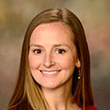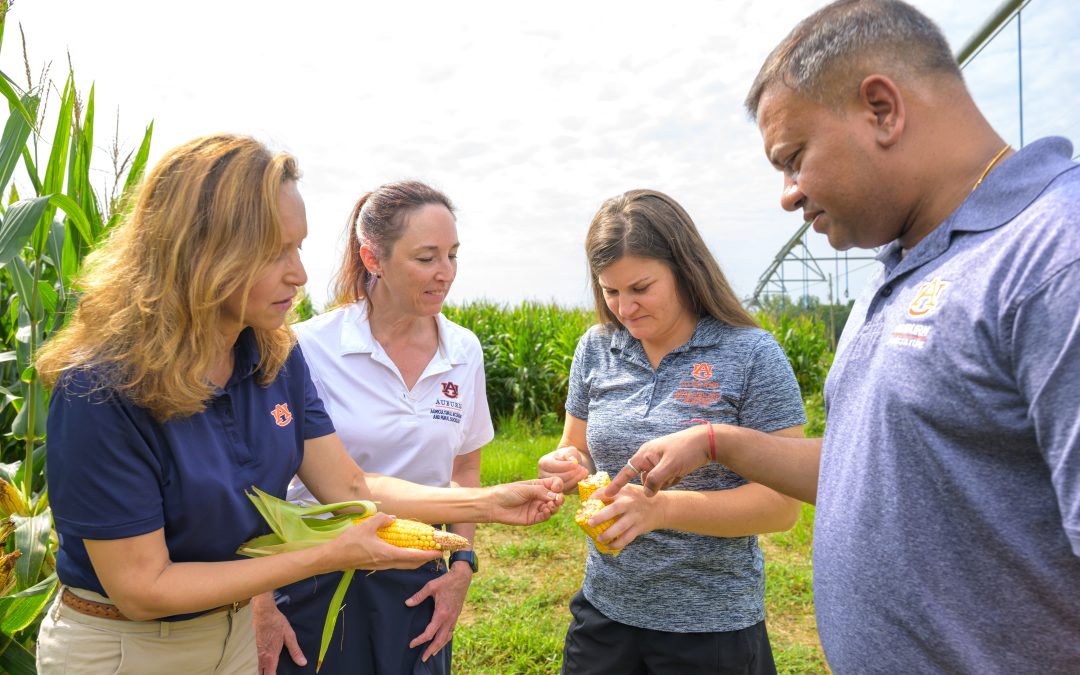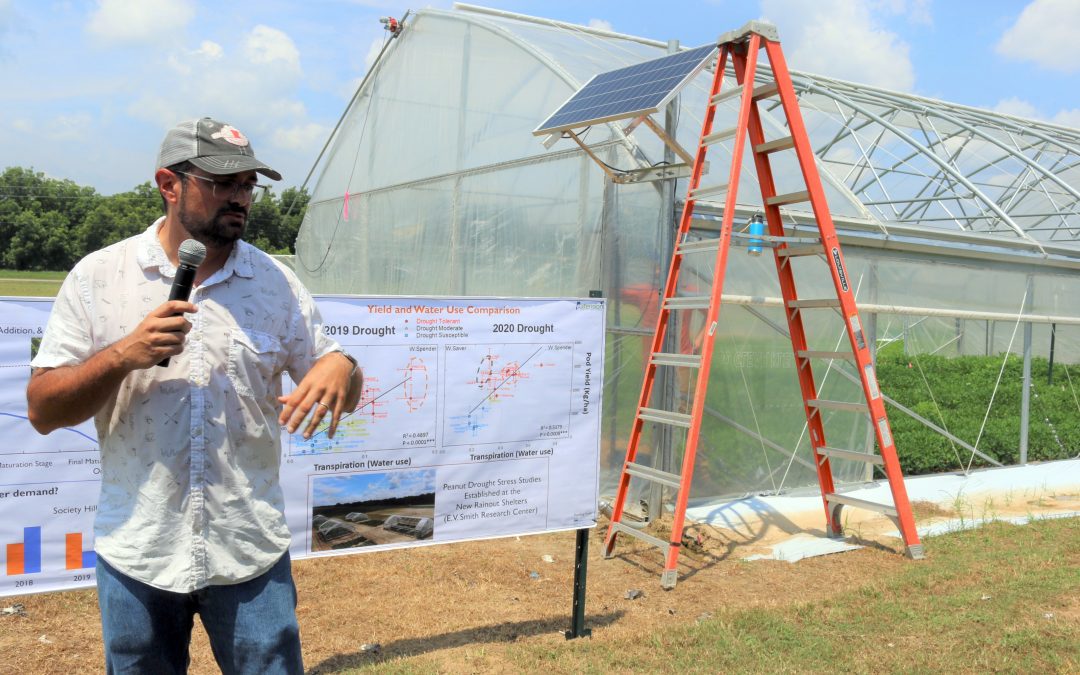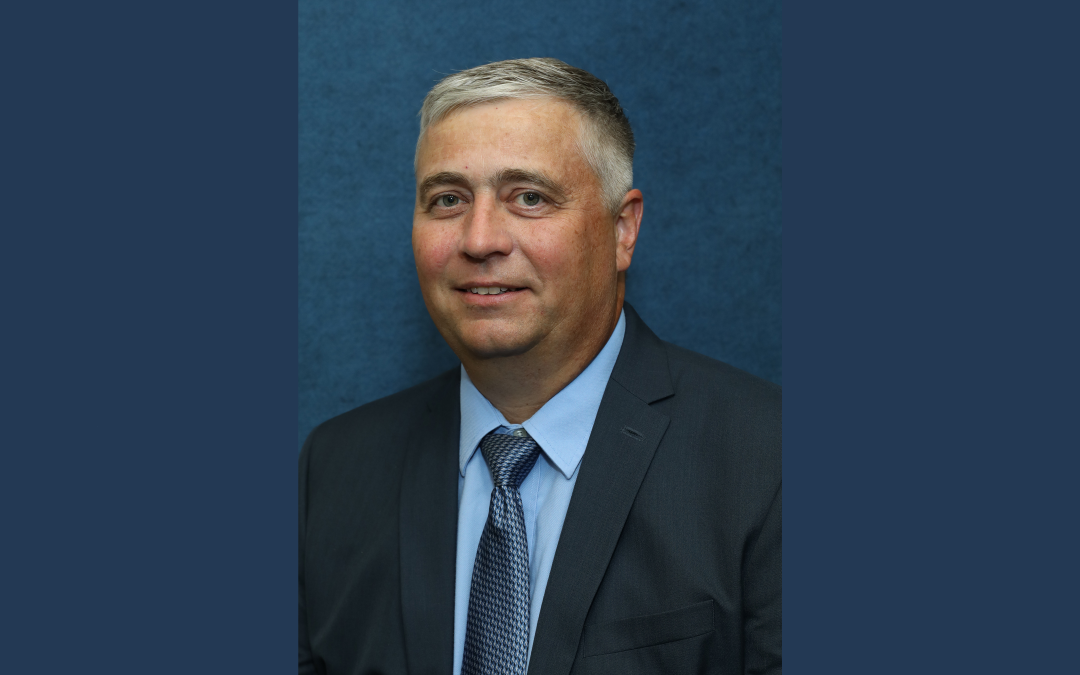story and video by NATHAN KELLY
Food Bank Garden helps feed community
The garden was founded almost a decade ago by Beth Guertal, a professor of agronomy. According to Zack Ogles, a Ph.D. student studying under Guertal, the garden’s purpose then—and now—is to feed the less fortunate in the university community.The Department of Crop, Soil and Environmental Sciences’ Food Bank Garden is the only garden in the department with a purpose that isn’t rooted in research. Instead, the garden exists to produce for the Food Bank of East Alabama.
“’Eat your vegetables,’ the refrain goes. ‘They will make you strong and healthy.’ How many times did you hear those phrases as a child? But, what if you couldn’t get those needed vegetables because they were too expensive, or you had no way to get to a store that supplied them?” Guertal asks. “That’s where the Food Bank Garden steps in, to provide fresh produce for those who may lack the ability to get this much-needed nutrition.”
The garden, which covers more than 14,000 square feet near campus, is maintained solely by volunteers who make time to plant and pick produce to be donated to the food bank.
“Affording and obtaining fresh vegetables is a problem for many people in Alabama. In addition to cost, these individuals often do not have regular transportation to larger grocery stores where fresh produce can be found,” Ogles says. “The idea behind the garden is to supply produce to those who otherwise wouldn’t have fresh vegetables as part of their diet.”
The garden runs on the energy of graduate and undergraduate crop, soil and environmental sciences students and other local volunteers. In addition to Ogles, undergraduates Evie Smith, Alex Calloway and Mallory McDaniel take the lead. Locals who pick and deliver the produce to the food bank are Kyle and Palie Butler and Kim Evans, the recently retired former Auburn women’s golf coach.
“I’ve worked in the garden sporadically ever since I started working under Dr. Guertal,” McDaniel says. “Zack works really hard out here, and he and Dr. Guertal have been great inspirations for me.”
This summer the crew is growing okra, green beans, tomatoes, bell peppers, eggplants, jalapeno peppers, yellow squash, zucchini squash, melons and cucumbers.
“At this point we’re still harvesting our summer vegetables, and we’ll switch to growing cooler weather vegetables when fall comes,” Ogles says. “Closer to September and October, we’ll take up the summer vegetables and replant with fall vegetables like broccoli, cauliflower, collards and cabbage.”
To date, the garden has produced and donated roughly 4,000 pounds of produce. The food is taken to the food bank for distribution, or the food bank’s Community Market for sale.
“This year we’ve had a number of really dedicated volunteers who worked with us in the garden,” Ogles says. “We are always taking new volunteers.”
The only requirement for volunteers is a willingness to work. Interested students, employees of Auburn University or area locals who would like to take part in fall harvests or deliveries should contact Guertal at guertea@auburn.edu, or Ogles at czo0005@auburn.edu.




